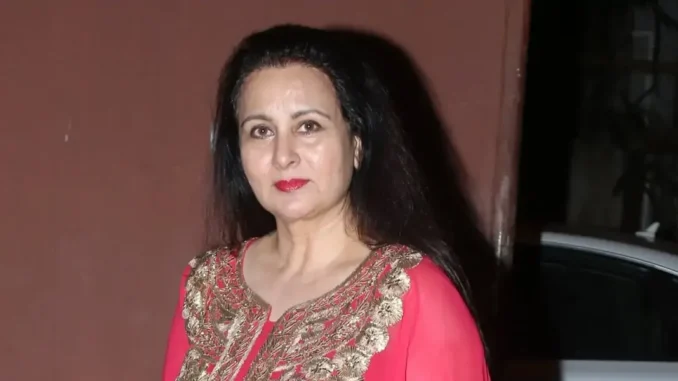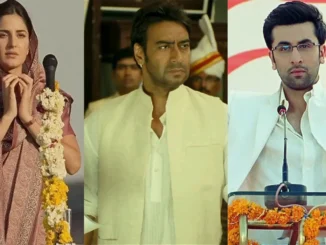
Veteran actress Poonam Dhillon, a prominent name in Bollywood since the late 1970s, has recently opened up about her groundbreaking contribution to the Indian film industry — a detail that many fans and even some insiders may not have been aware of. In a nostalgic and insightful revelation, the Trishul star shared that she was instrumental in introducing the concept of vanity vans to Bollywood, long before they became a standard fixture on film sets.
In a candid conversation during a recent interview, Poonam recounted how the idea stemmed from a practical need during her peak acting years. “Back in the day, we used to change clothes behind makeshift curtains or in hotel bathrooms. There was no concept of a private space for actors on set,” she explained. “I used to feel very uncomfortable, especially while shooting at outdoor locations where there were no proper changing rooms or facilities.”
Seeing this persistent issue and feeling a strong urge to bring change, Poonam took matters into her own hands. In the early 1990s, she launched a company that offered custom-built vanity vans to actors, directors, and other film crew members. The idea was revolutionary at the time — the Indian film industry had never seen anything like it.
“I started a business called ‘Vanity,’ and our vehicles were fully equipped with mirrors, air conditioning, wardrobes, and all the facilities an actor might need while shooting. It wasn’t just about luxury; it was about comfort, hygiene, and professionalism,” she said, recalling how her initiative was initially met with surprise and even skepticism.
But soon, the concept caught on like wildfire. The convenience of having a dedicated mobile space was quickly recognized by producers and actors alike. Before long, other companies entered the space, and the idea of “vanity vans” became deeply embedded in the day-to-day workings of Bollywood.
What makes Poonam’s contribution even more remarkable is how the name of her company — Vanity — eventually became the generic term for these vehicles. “It was quite funny. People began asking for a ‘vanity’ on set, not knowing that the word originally came from my brand. It’s become so common now that no one even thinks about where it started,” she said, laughing.
The phenomenon is similar to how some brand names become synonymous with the product itself — like Xerox for photocopying or Bisleri for bottled water. In Bollywood, the term ‘vanity van’ is now used universally, with hardly anyone realizing it traces back to Dhillon’s entrepreneurial vision.
Today, vanity vans are considered an essential part of film production logistics. From small-budget films to mega blockbusters, no set is complete without them. They serve as more than just a dressing room — they are often a sanctuary for stars, a workspace for directors, and sometimes even a quiet spot for script revisions or mental preparation.
Poonam’s foray into this business world was also part of a larger trend of actresses from her era stepping beyond the camera and exploring new roles in media, entrepreneurship, and public service. Speaking about that transition, she said, “I always believed in reinventing myself. Acting was and will always be my first love, but creating something that the entire industry could benefit from — that gave me a different kind of satisfaction.”
She also took a moment to reflect on the challenges of being a woman entrepreneur in a male-dominated industry during that time. “It wasn’t easy to convince people, especially producers, to invest in something they had never seen before. But I knew that this was a long-term need. Once they saw the benefits, there was no going back.”
Over the years, Poonam has continued to act in films, TV shows, and participate in public life. But this contribution — bringing comfort and professionalism to the working lives of countless actors and technicians — is something she takes quiet pride in.
As Bollywood continues to evolve and embrace newer technologies and better infrastructure, Poonam Dhillon’s innovative thinking remains a shining example of how one person’s idea can change the course of an entire industry. Her story is not just about the birth of the ‘vanity van,’ but about vision, resilience, and the power of addressing problems with smart solutions — long before anyone else even thought of them.



